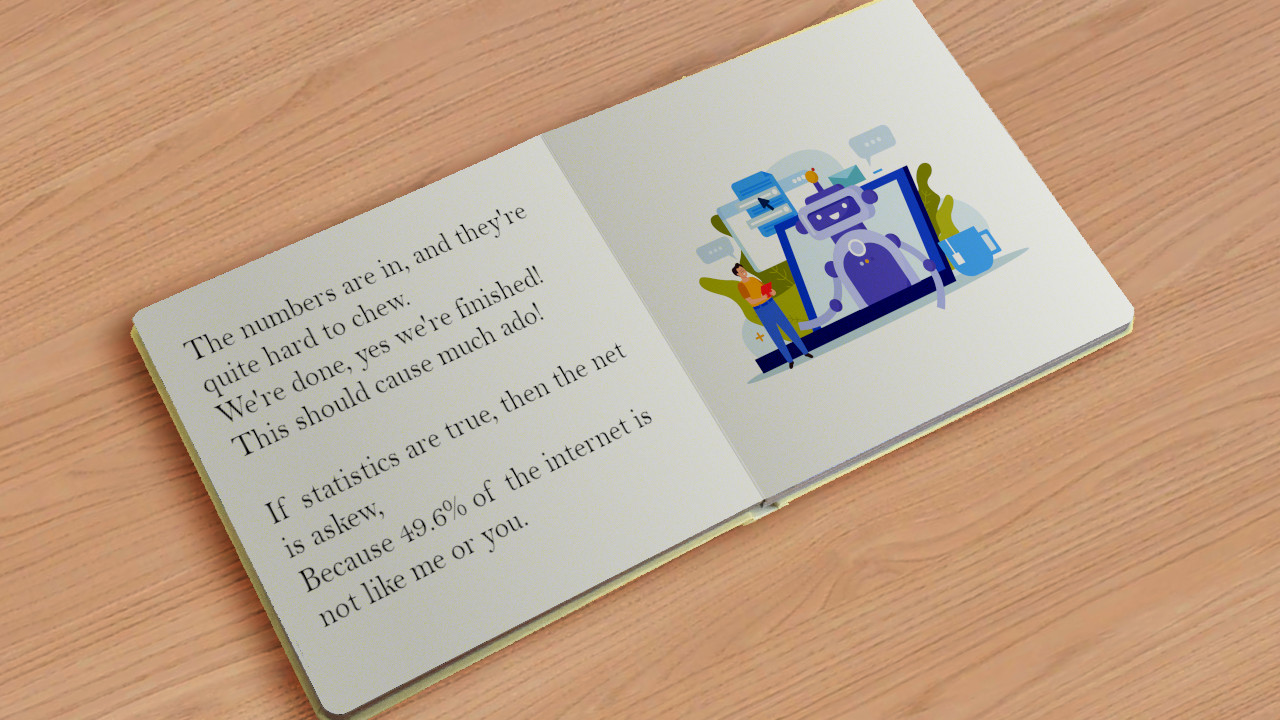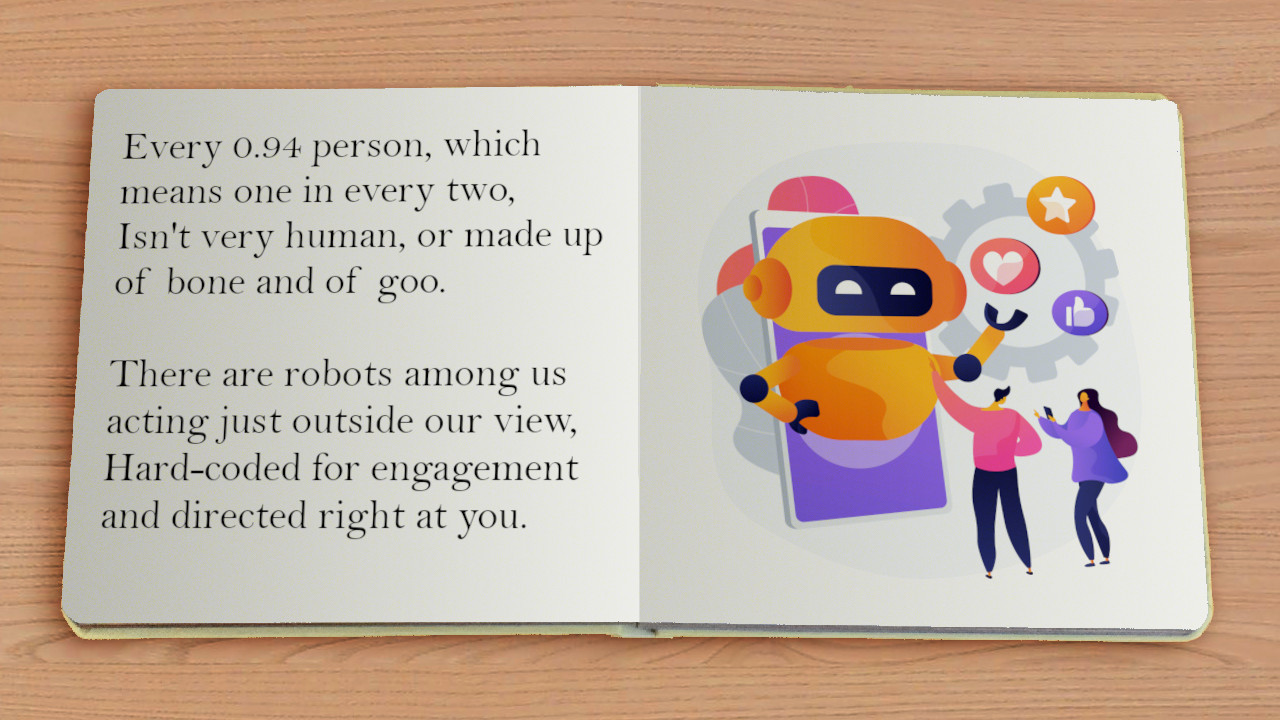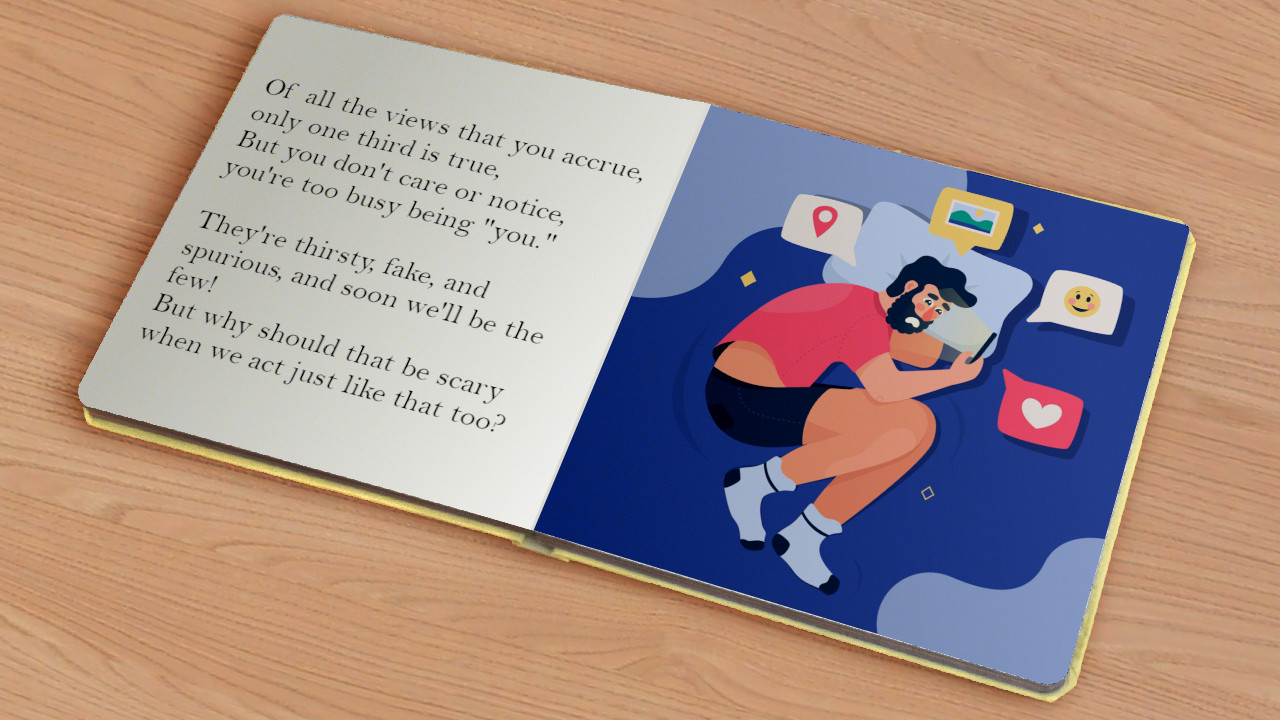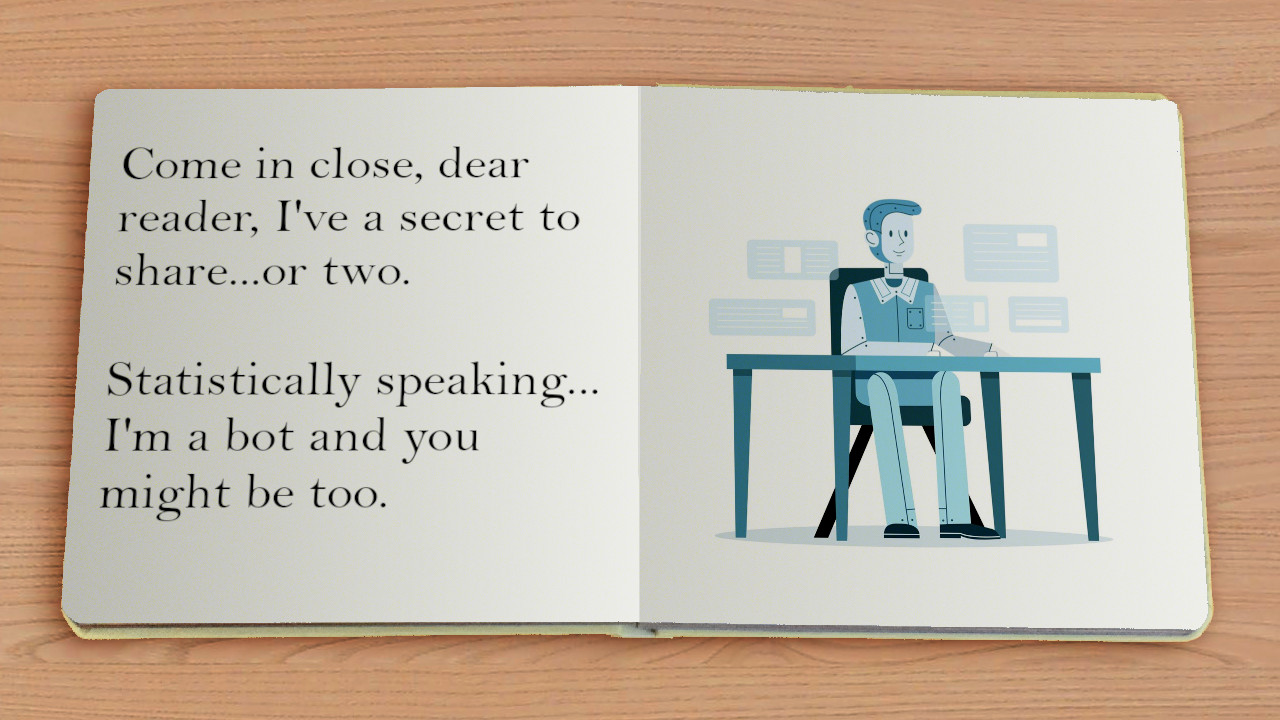You're a bot, and I am too: Internet conspiracy theory is 49.6% true
Congratulations, we ruined the internet
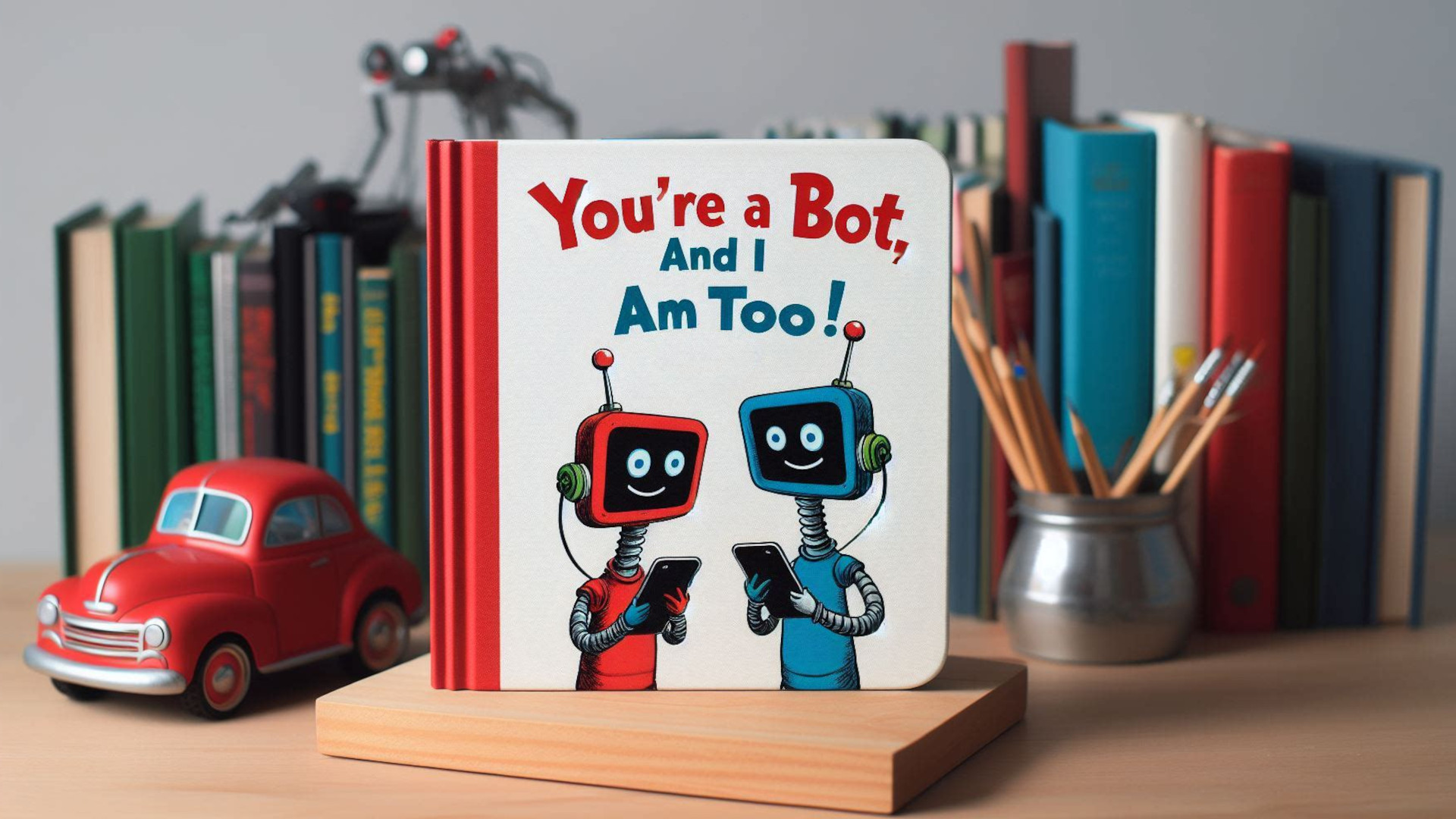
The internet, as we know it, is a vital part of day-to-day life for many. It’s become a place to showcase accomplishments, seek solace in defeats, educate yourself on modern and historical topics, be a part of the global conversation on trending talking points, and exchange pictures of your feet with strangers and get cold, hard cash.
However, what if I told you that the internet wasn’t any of those things? In fact, what if none of it was real at all? Something is going on with the internet, happening just out of sight. You’ll catch glimpses of it here and there, but you’d be amazed to know how deep it really stretches, not to mention how much deeper it could yet go.
The internet we know today isn’t the same one I knew a few decades ago, and tomorrow's internet will still be decidedly different. Surprisingly, a conspiracy theory made popular in 2021 might hold more truth than anybody realized at the time. It may forecast the direction the internet is heading from its humble Web 1.0 beginnings.
The Golden Age of the Internet: The Wild Wild Web 1.0
Believe it or not, the internet used to be a fairly straightforward place — as long as you approached it with the right amount of skepticism, anyway.
Despite being faker than Jimmy Fallon’s laughter, the internet of old was the most “real” thing you ever could have encountered.
Pseudonyms and screen names were a must; sharing any personal details was a broad no-no; it was well known that everyone was a liar and that anybody whose A/S/L (age/sex/location) was 18/F/Cali was either a Fed or a sex pest; and no AOL username was complete without being flanked by a series of Xs.
These unwritten rules of the internet kept things ticking along nicely. You’re a liar, I’m a liar, you’re not a Californian teenager, and I’m not an elite-level hacker who knows the first thing about what to do with your IP address. Nobody ever assumed anyone was who they said they were online. That’s why every internet argument ever would typically end with one person revealing they were a Navy Seal sniper with 300+ confirmed kills.
The internet was one big LARP, an in-character, multi-server MMO where the character classes were keyboard warrior, forum troll, thread necromancer, atheist cleric, and pervert. The Wild Wild West that was the World Wide Web ran like clockwork, and it was incredible.
Sign up to receive The Snapshot, a free special dispatch from Laptop Mag, in your inbox.
It was the most organic collection of viewpoints and passion projects ever seen, and it told you far more about these people than their names, professions, or locations ever could.
Strangely, despite being faker than Jimmy Fallon’s laughter, the internet of old was the most “real” thing you ever could have encountered. While everyone was all too happy to adopt a fantastical digital identity, that cover of anonymity gave them the freedom to express themselves in the most earnest of manners—regardless of the blowback they’d receive from vile little internet trolls like me.
If someone loved their cat, they made a website saying how much they loved their cat. If somebody wanted to talk endlessly about the Commodore 64, they just did. It was the most organic collection of viewpoints and passion projects ever seen, and it told you far more about these people than their names, professions, or locations ever could.
The Plastic Age of the Internet: Chasing our 15 minutes of Web 2.0 fame
Nowadays, the internet, and the way we use it, has been flipped entirely on its head. We willingly display our real names; offer up our real-time locations without thought just to humble brag about restaurant meals and holiday destinations; gleefully share our selfies for clout, if not our nudes for dollars; and if you’re not talking to strangers with reckless abandon online, you’re just not doing it right.
It’s getting out of hand—and, for most of us, in a way that goes beyond comprehension. Although we understand more about our ‘personal’ data than we did before, a lot of us still don’t realize how far a single piece of information goes when we ‘shed’ it online. If we’re not proactively opting out of data brokers, we’re way more exposed than we realize.
Ironically, bringing our real identities into the light has only made us all more fake.
The virtual world has become heavily intermingled with the real one, and that fantastical element of being anyone from anywhere at any time was replaced by just being you. And I hate to break it to you, but sharing your cable news-inherited political hot-takes to 40 of your closest and most embarrassed friends on Facebook isn’t anywhere near as impressive as claiming to be the person Rambo was based on or the physical incarnation of Neo from The Matrix.
Ironically, bringing our real identities into the light has only made us all more fake. We can no longer pose as that non-existent Navy Seal, we’re just stuck being us. And quite frankly, real people are mostly duller than dishwater. So, instead, we blur the lines between fantasy and reality by faking who we really are—with impressive-sounding job titles and photoshopped selfies.
The modern internet is all about you. The you that you'd like to think others picture you as, anyway.
Worse still, we feign our interests now, leaping onto what’s trending or hip to gain traction as figures riding the crest of cool at all times. Professional gamers who dedicate eight hours or more a day to games they don’t enjoy because they know it garners views, and the knitting enthusiast who gave up on their blog for Only Fans because the results of a Brazilian butt lift reaped far more engagement than explaining their love for Bavarian twisted stitches.
The modern internet is all about you. The you that you'd like to think others picture you as, anyway. We’re all positioned as the main character of the movie now, influencers and entrepreneurs amassing followers and likes as if the web’s MMO rules have been swapped for those of a real-time strategy framework—where the goal of the game is to build your cult of personality and harvest self-affirmation points on your quest to gaining entry to the YouTube Partner program.
The Artificial Age of the Internet: The Dead Internet and the wastelands of web 3.0
You’d be forgiven for thinking that our addiction to touched-up selfies and thirst trap engagement bait would be about as artificial as it gets, but you’d be wrong. Dead wrong. About as dead as the internet might potentially be.
49.6 percent of all internet traffic throughout 2023 came from bots. Over 30 percent of these are deemed “bad bots,” which aid fake view counts, false engagement, and spam.
The idea of the “dead internet” is a conspiracy theory that suggests that the web is now so fake that it’s predominantly populated by AI-generated content and bots, and you just can’t tell the difference. Your likes, reblogs, comments, views — a large portion of the interactions you encounter online could all be fake. If Web 2.0 was about you, the next stage of the internet might only be you.
More than that, the theory, outlined in a 2021 forum post titled “Dead Internet Theory: Most Of The Internet Is Fake,” suggests that this is all done to manipulate culture and influence you as a consumer. All while trapping you in an endless cycle of engagement, surrounded by fake agents to make the experience feel far more social than it really is.
While that sounds like a revelation from the end of a Metal Gear Solid game, a report from cyber security firm Imperva found that 49.6 percent of all internet traffic throughout 2023 came from bots. Over 30 percent of these are deemed “bad bots,” which aid fake view counts, false engagement, and spam.
Further, a report by HypeAuditor in 2021 found that certain super-popular Instagram influencers sit on top of audiences that may be 45 percent fake. A SimilarWeb analysis found that bots accounted for between 20.8 percent and 29.2 percent of all content posted to X in 2022 despite only making up 5 percent of the total accounts on the platform.
Bots accounted for between 20.8 percent and 29.2 percent of all content posted to X in 2022 despite only making up 5 percent of the total accounts on the platform.
Anecdotally, as a writer, I’ve also noticed an influx of AI rehashes of articles appearing on strange unheard-of websites under different names — completely fabricated identities that publish hundreds of (stolen) articles a day.
With the rise of generative AI, these statistics are likely to increase further throughout 2024, with software like ChatGPT, Google Gemini, and Microsoft Copilot each crawling through cyberspace to answer user prompts. Internet users could be further shepherded through the internet by updates like Google’s SGE (Search Generative Experience), which co-opts Search pages to provide an algorithmically sound recap of the results it prefers.
Is it true that the internet is one big AI-powered government psyop to turn us into brainwashed consumers? Probably not. The government is too incompetent, though I wouldn’t put it past large corporations.
That aside, regardless of whoever or whatever is responsible and why, it’s clear that bot activity on the internet is poised to ultimately overtake human users. While the Dead Internet Theory remains a conspiracy, its grounding in reality remains apparent.
You're a bot, but I am too
One of the core ideas underpinning the Dead Internet theory has to do with how the Internet feels a little void and vacant of real people. Given that we’re giving up more of our virtual spaces to artificial chatbots, that feeling will only grow over time if left unchecked.
What does it matter that half the internet is made up of bots when we act just like them anyway?
We all notice the reply bots on X, the gold sellers in our games, and the same old comments from fake explicit profiles appearing under videos and images on social media. How many people reading this can honestly claim they don’t get more spam emails than real ones on any given day? The bots are taking over, and all we seemingly do is disengage and cede the internet to them.
But what are we to do? The cat is well and truly out of the bag with bots and AI. The problem is likely to escalate until the number of bots greatly overpowers the number of people, at which point, any form of interaction with someone else online will be rare. We’ll just be surrounded by the profiles of artificially generated, scantily clad avatars who talk incessantly about the health benefits of Coca-Cola.
What does it matter that half the internet is made up of bots when we act just like them anyway?
Outlook
Do you want to know why nobody noticed that so many people online weren't real people? Because we've all stopped being real people too. We're predictable, easily influenced by the algorithm, and each of us enamored by the possibility that others will see us as slightly more interesting than we actually are.
If it were up to me, I’d put a fork in the road ahead. Let the bots have this internet. We lost it long before they showed up, anyway. I’d like us to circle back to those Web 1.0 ways. I’d like to make the internet great once more. I’d want you all to put down your SEO safety blankets and convince me of your ability to combat the Coriolis effect again.
Let the bots have this internet. We lost it long before they showed up, anyway.
Stop parading for likes on social media, take down your carefully crafted karma farm Reddit posts, quit playing Call of Duty: Warzone on Twitch, enjoy the games you actually love, and bring the internet back to life — the real one.
The internet where people did what they did out of love and passion, and not because everybody was talking about it on X, or because they want a fraction of the adoration that somebody else received by doing it first.
Of course, this is unlikely to happen. There’s too much money at stake. Lives and livelihoods are now reliant on every website chasing the same SEO goals, and content creators can’t afford to take chances on deviating from the “current thing.”
However, a man can dream. That is, if I even am a man. Statistically speaking, reader, one of us isn’t even real.
More from Laptop Mag
- The darker side of the AI girlfriend trend
- The 5 most disturbing ways AI is currently being used
- I spent a week using AI for everything — the good, bad, and downright ugly

Rael Hornby, potentially influenced by far too many LucasArts titles at an early age, once thought he’d grow up to be a mighty pirate. However, after several interventions with close friends and family members, you’re now much more likely to see his name attached to the bylines of tech articles. While not maintaining a double life as an aspiring writer by day and indie game dev by night, you’ll find him sat in a corner somewhere muttering to himself about microtransactions or hunting down promising indie games on Twitter.
